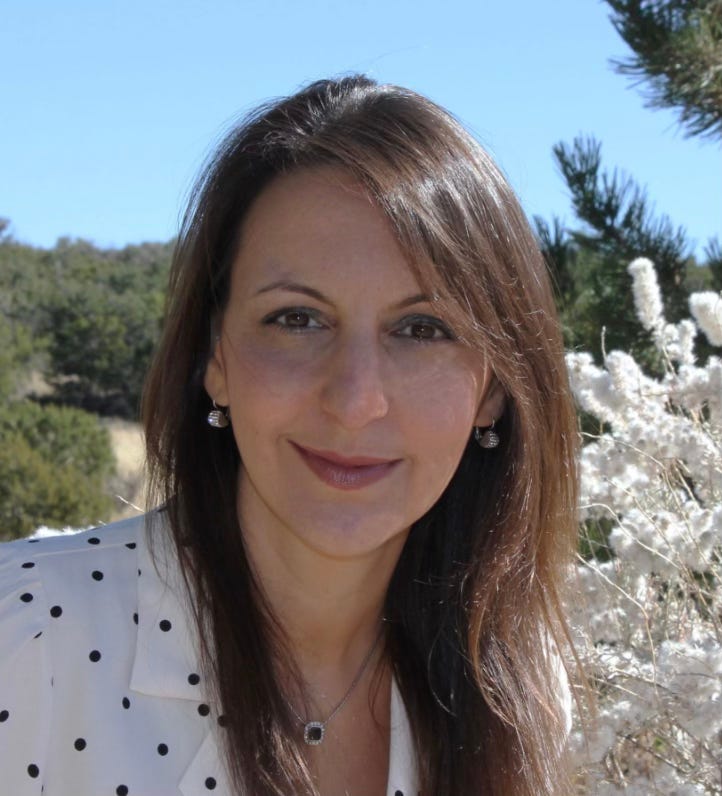Health Humanities Event News
Dr. Hope Ferdowsian to present on human and nonhuman animal research ethics at University of Texas School of Law
Starting Principles: Human and Animal Policy
(Dr. Hope Ferdowsian, Founder of the Phoenix Zones Initiative.)
Animal Law Workshop
University of Texas School of Law
February 22, 2024
12:00pm - 1:15pm CT
Ethics Workshop and Training Program
Drawing on her work in human and animal research ethics, Dr. Hope Ferdowsian will discuss how starting from clear ethical principles has informed human research policy, and how a similar approach could better inform research policy surrounding the use of animals in research—resulting in improvements in medicine, science, and ethics and greater protections and benefits for people and animals.
Join in-person or online via Zoom here>
https://utexas.zoom.us/j/92155979467?pwd=MXJncTJ1eVFNVmxJL2FEZlMxdktlZz09
Meeting ID: 921 5597 9467 / Passcode: 242422
Read the original essay written by Dr. Hope Ferdowsian for the “SOME PEOPLE” project:
Much of my clinical work in Washington, DC, and New York was with individuals who are homeless, so everywhere I go as a physician, I am mindful of how this impacts the health of the individual, community well-being and resilience, and on a larger scale, Public Health.
I spotted this cart and took this image hastily while driving in the nation’s capital, where I was working at the time. American flags are draped over a shopping cart to create a fort, a home most likely carrying the sum of that person’s worldly possessions. Near this cart, people who are homeless live under an overpass, several also care for homeless dogs. To the majority of passersby, these individuals are invisible, perhaps because they remind us of our individual vulnerabilities and our miscarriages as a society. Although the image is a quick snap taken from my car window, those fleeting images remain in my mind’s eye. We don’t actually want to see clearly, in focus, the faces of “those people;” seeing these individuals may also lead us to questions we may not wish to examine.
When I was a kid, my parents went through bankruptcy after struggling with medical bills. I witnessed my mother and father go through that distressing period and felt the impact on our family. Were we one bill away from becoming “those people?” My patients facing homelessness have taught me that we easily could have been.
Here’s my attempt to begin to answer the questions we may or may not wish to examine—but that we must, in one form or another. Who is the “other” or “some people?” Otherness—an emphasis on difference—is only possible when we form group identities, often determined by power differentials and magnified by the silos we select. Siloed group identities fuel gaps in empathy for the “other.”
Most of us are capable of empathy, to varying degrees, but we distribute it inequitably. We don’t start out life with empathy gaps. Fueled by uncertainty, and a fear of our own vulnerabilities, gaps in empathy for the “other” power disdain and apathy, but the optical delusion of otherness cannot sustain itself, as we will all at some point become the “other,” in part because of our shared vulnerabilities.
For those of us who care for and about vulnerable individuals other than ourselves, what does their trauma mean to our own? It is difficult to turn toward, rather than away from, vulnerability and suffering. In medicine, journalism, and life, people who turn toward vulnerable people and animals face a range of psychological risks, including compassion fatigue, also known as vicarious traumatization, often leading to numbness, withdrawal, anger, and cynicism.
There is an emotional cost to caring genuinely for those other than ourselves. But there is also an inexplicable emotional gift. Caring for others, through our vulnerabilities, can make us stronger through “vicarious resilience.” How can we nurture each other’s vulnerabilities rather than ignoring or exploiting them?
But what about when vulnerability becomes pathogenic—harmful and deadly? Feminist philosophers Catriona Mackenzie, Wendy Rogers, and Susan Dodds have described what they call a “pathogenic” form of vulnerability influenced by inequities: some individuals remain more vulnerable than others due to legal, political, and social determinants of health, including housing, economic, and health policies, or a lack thereof. Over the years, these disparities have become clearer and clearer to me as I’ve witnessed many of my patients struggle with working hard for little pay, homelessness, and unimaginably difficult decisions, like choosing between food, medications, and heating. In medicine, the word “pathogenic” foreshadows the spread of disease if its core causes are not eliminated.
In order to nurture rather than exploit vulnerabilities, we must embrace the principles that allow us to thrive and transform them into the reality we all deserve.
In order to create a healthy society, what, outside the healthcare system, demands our attention? What principles and rights should guide our treatment of each other—both inside and outside the healthcare system?
As fundamental truths or propositions, principles serve as the foundation for values, behaviors, and logic: a central ethic ideally and barely bound by an increasing circle of compassion. The truest principles also reflect our biological needs, a collection of so-called negative and positive rights essential to our health and well-being: respect for liberty, bodily sovereignty, dignity, love, compassion, tolerance, justice, and opportunity. These principles form the basis for the Phoenix Effect and Phoenix Zones, in which individuals can rise up from significant trauma and adversity.
It is time for us to create a society that is a Phoenix Zone, guided by key principles and a sense of community and solidarity, with an eye toward prevention, nourishing rather than exploiting the vulnerabilities of “others,” ourselves, every body.
ADDITIONAL RESOURCES
Learn more about the Phoenix Zones Initiative





